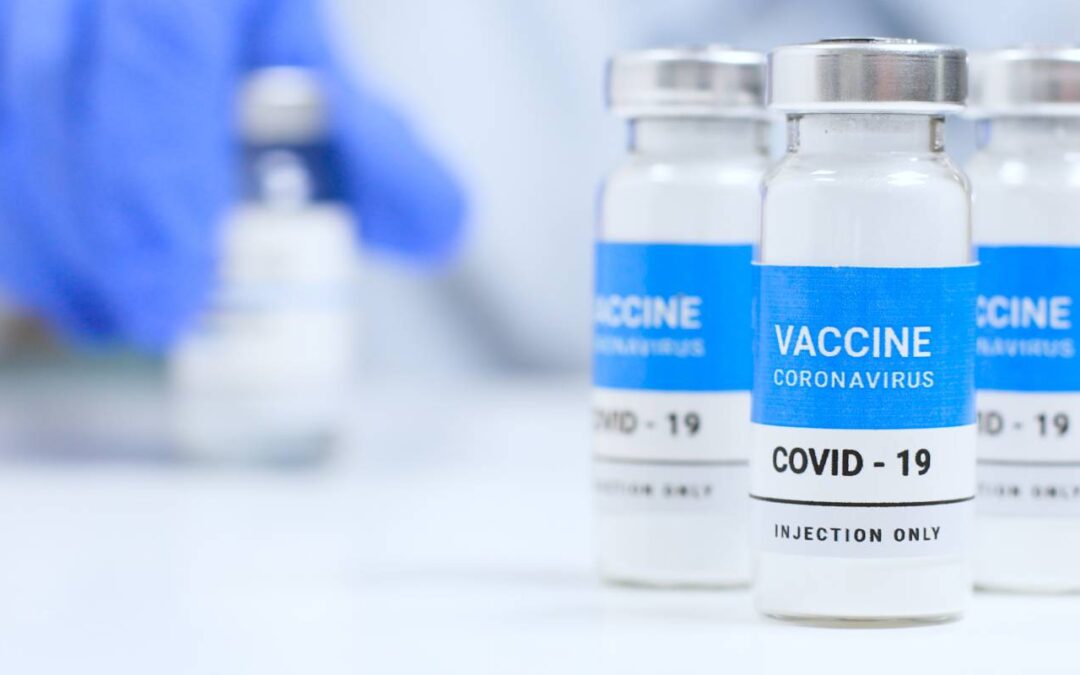Since the first clinically approved vaccine against COVID-19 was administered to a patient in December 2020, eleven have been approved by the World Health Organization, while many more are still undergoing trials. Since, it has grown evident that the SARS-CoV-2 virus will continue to evolve new variants, similar to the flu, and many researchers now believe that future vaccination efforts will need to rely on variant-adapted COVID-19 vaccines.
A key question remains as to whether it is best to adapt the vaccine to the different emerging variants or to try to develop vaccines targeting a strategically selected combination of strains that could even prime the immune system against anticipated variants in the future (1).
Developing strain-specific vaccines in response to emerging variants is an initial, most natural solution. Most recently, an Omicron-adapted vaccine has shown highly promising data to this end (2). In parallel, adapted versions of established mRNA COVID-19 vaccines targeting two variants, or bivalent shots, will soon be available. In particular, Moderna and BioNTech-Pfizer are collaborating on the development of vaccines based on a combination of the original Wuhan virus and an Omicron subvariant – slated for the autumn 2022 vaccination program (2).
Challenges remain, however. No clear consensus has yet been reached as regards which strains to include in vaccines, in part due to the rapid emergence of novel strains. Indeed, the emergence and spread of new SARS-CoV-2 variants, at a global scale, regardless of the season, has been very rapid, complicating vaccine updates (3).
Additional experimental vaccines in development are aiming to invoke a broader immune response, to all sarbecoviruses, the group of respiratory viruses that encompasses SARS-CoV-2 and the original SARS-CoV viruses (4). An early trial, which began in the fall of 2021, has reported promising initial results from a multivariant vaccine – despite only triggering the production of neutralizing antibodies at a similar rate to already approved mRNA vaccines (5). Another vaccine developed at the University of Cambridge, based on nanoparticles containing parts of the spike protein of a number of sarbecoviruses, also entered clinical trials in the fall 2021 (6). Phase 3 results have so far been positive (7).
Finally, a pan-coronavirus vaccine is another possible long-term option. Dozens of universal coronavirus vaccines harnessing a number of different approaches are in development (8,9).
However, similar to the development of a strain-specific vaccine, a highly changeable virus makes it difficult to develop a vaccine that will address all variants. For example, a vaccine against measles, which does not change much, has been successfully developed, while no vaccine against HIV, which presents as a slew of different variants even in one single individual, has yet been created. It is expected that SARS-CoV-2 might be more similar to HIV with rapid emergence of new variants.
Though efforts to create variant-adapted COVID-19 vaccines have seen some preliminary success (10), some experts caution that coronaviruses in general (including SARS, MERS, and others) are so different that catching them all under one net remains a challenge. That being said, a pan-sarbecovirus vaccine may be more achievable.
While non-vaccine treatments, such as monoclonal antibodies and antivirals, are an important complement to vaccines, vaccines remain the least expensive way of prophylactically reducing the risk to an entire population. In the future, additional research will be required to develop either variant-adapted or variant-agnostic COVID-19 vaccines, which are likely key to staying ahead of the virus and preventing it from causing more damage than it already has.
References
- Stokel-Walker C. How are vaccines being adapted to meet the changing face of SARS-CoV-2? BMJ. 2022 Jun 1;377. doi: 10.1136/bmj.o1257.
- Pfizer and BioNTech Announce Omicron-Adapted COVID-19 Vaccine Candidates Demonstrate High Immune Response Against Omicron | Pfizer [Internet]. [cited 2022 Jul 25]. Available from: https://www.pfizer.com/news/press-release/press-release-detail/pfizer-and-biontech-announce-omicron-adapted-covid-19
- Callaway E. Fast-evolving COVID variants complicate vaccine updates. Nature. 2022 Jul 7;607(7917):18–9. doi: 10.1038/d41586-022-01771-3.
- Sarbecoviruses (SARS-CoV1, SARS-CoV2 aka COVID-19) | Charles River [Internet]. [cited 2022 Jul 25]. Available from: https://www.criver.com/products-services/research-models-services/animal-health-surveillance/infectious-agent-information/sarbecoviruses-sars-cov
- Early data for multivariant COVID-19 vaccine booster shows promise – Manchester University NHS Foundation Trust [Internet]. [cited 2022 Jul 25]. Available from: https://mft.nhs.uk/2022/01/06/early-data-for-multivariant-covid-19-vaccine-booster-shows-promise/
- Cambridge coronavirus vaccine enters clinical trial [Internet]. [cited 2022 Jul 25]. Available from: https://www.cam.ac.uk/stories/DIOSCoVax_safetytrial
- NIHR Cambridge CRF | | Positive phase 3 results reported in trial for new Covid-19 vaccine [Internet]. [cited 2022 Jul 28]. Available from: https://cambridge.crf.nihr.ac.uk/positive-phase-3-results-reported-in-trial-for-new-covid-19-vaccine/
- Dolgin E. Pan-coronavirus vaccine pipeline takes form. Nat Rev Drug Discov. 2022 May 1;21(5):324–6. doi: 10.1038/d41573-022-00074-6.
- Are Pan-Coronavirus Vaccines Possible? | Science | AAAS [Internet]. [cited 2022 Jul 28]. Available from: https://www.science.org/content/blog-post/are-pan-coronavirus-vaccines-possible
- Looi MK. The BMJ Interview: WHO chief scientist optimistic for a pan-coronavirus vaccine in two years. BMJ. 2022 Apr 26;377. doi: https://doi.org/10.1136/bmj.o1003
- Coléon S, Wiedemann A, Surénaud M, Lacabaratz C, Hue S, Prague M, et al. Design, immunogenicity, and efficacy of a pan-sarbecovirus dendritic-cell targeting vaccine. eBioMedicine. 2022 Jun 1;80:104062. doi: 10.1016/j.ebiom.2022.104062.
- Global regulators agree on key principles on adapting vaccines to tackle virus variants | European Medicines Agency [Internet]. [cited 2022 Jul 25]. Available from: https://www.ema.europa.eu/en/news/global-regulators-agree-key-principles-adapting-vaccines-tackle-virus-variants





Recent Comments